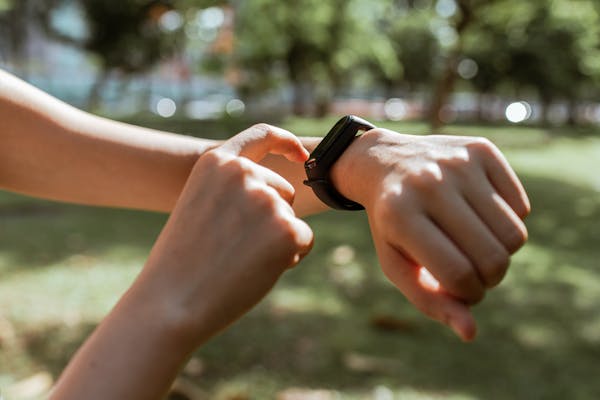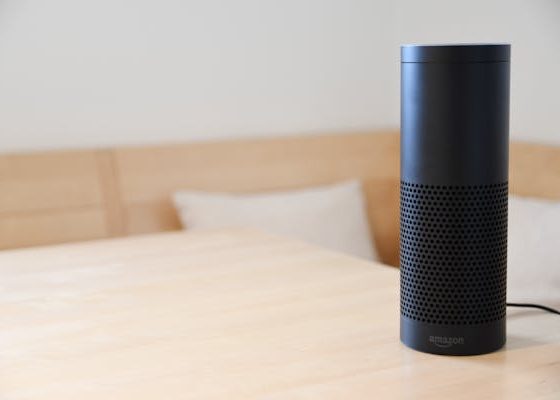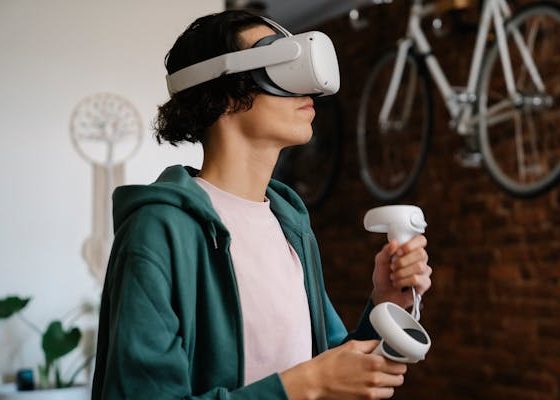
In today’s health-conscious society, fitness trackers have become an essential tool for monitoring and improving physical activity. With an array of features designed to track everything from steps to heart rate, these devices offer invaluable insights into your health and fitness levels. In this comprehensive guide, we will explore the best fitness trackers available in the market, examining their features, benefits, and what makes them stand out. Whether you are a seasoned athlete or just starting your fitness journey, this article will help you find the best fitness tracker to meet your needs.
Understanding Fitness Trackers
Fitness trackers are wearable devices that monitor various metrics related to physical activity and health. These devices typically track steps, calories burned, distance traveled, and sleep patterns. More advanced models can monitor heart rate, blood oxygen levels, and even offer GPS functionality.
Key Features of Fitness Trackers

- Step Counting: This is the most basic function of a fitness tracker. It helps users set daily step goals and track their progress.
- Heart Rate Monitoring: Measures your heart rate throughout the day and during exercise, providing valuable data on your cardiovascular health.
- Sleep Tracking: Monitors the quality and duration of your sleep, helping you understand your sleep patterns.
- Calorie Tracking: Estimates the number of calories burned based on your activity levels.
- GPS Tracking: Useful for runners and cyclists, it tracks your route, distance, and pace.
- Water Resistance: Important for swimmers and those who want to wear their tracker in all conditions.
- Notifications and Smart Features: Many fitness trackers can sync with your smartphone to provide call, text, and app notifications.
The Best Fitness Trackers of This Year
1. Fitbit Charge 5
Fitbit has been a leader in the fitness tracker market for years, and the Charge 5 is one of its most advanced models.
Features:
- Heart Rate Monitoring: Continuous heart rate tracking with ECG app for more detailed analysis.
- Built-in GPS: Track your runs and rides without needing your phone.
- Stress Management: Includes tools to help you manage stress and monitor your skin temperature.
- Sleep Tracking: Offers insights into your sleep quality and stages.
- Battery Life: Up to 7 days on a single charge.
Why It’s the Best:
The Fitbit Charge 5 combines advanced health-tracking features with a sleek design. It is particularly noted for its accurate heart rate monitoring and stress management tools, making it a comprehensive health tool.
2. Apple Watch Series 8
For those looking for a device that combines fitness tracking with smart features, the Apple Watch Series 8 is a top choice.
Features:
- ECG and Blood Oxygen Monitoring: Provides advanced health metrics.
- Fitness Tracking: Tracks a wide range of activities including running, cycling, swimming, and yoga.
- GPS and Cellular: Allow for tracking without a phone and can make calls and send texts.
- Integration with Apple Ecosystem: Seamlessly works with other Apple products and services.
- Fall Detection: Alerts emergency contacts in case of a fall.
Why It’s the Best:
The Apple Watch Series 8 offers an unparalleled combination of health tracking and smart features. Its ability to integrate with the Apple ecosystem and provide comprehensive fitness and health data makes it a standout choice.
3. Garmin Forerunner 955
Garmin is known for its high-quality GPS devices, and the Forerunner 955 is perfect for serious athletes.
Features:
- Advanced GPS Tracking: Provides precise tracking for runners and cyclists.
- VO2 Max: Estimates your maximum oxygen uptake for a measure of cardiovascular fitness.
- Training Load and Recovery: Helps you understand the impact of your workouts and when to rest.
- Music Storage: Allows you to store and play music directly from the watch.
- Long Battery Life: Up to 2 weeks in smartwatch mode.
Why It’s the Best:
The Garmin Forerunner 955 is designed for athletes who require detailed performance metrics. Its advanced training features and accurate GPS make it ideal for serious runners and cyclists.
4. Samsung Galaxy Watch 5
Samsung’s Galaxy Watch 5 offers a great balance of fitness tracking and smart features.
Features:
- Comprehensive Health Monitoring: Includes heart rate, ECG, and blood oxygen monitoring.
- Fitness Tracking: Tracks a wide range of activities and workouts.
- GPS and LTE: Provides accurate tracking and connectivity on the go.
- Integration with Android: Works seamlessly with Android devices.
- Stylish Design: Available in various styles and finishes.
Why It’s the Best:
The Samsung Galaxy Watch 5 is a versatile device that offers robust fitness tracking and smart features. Its stylish design and comprehensive health monitoring make it a popular choice for Android users.
5. Whoop Strap 4.0
The Whoop Strap 4.0 is unique in its approach to fitness tracking, focusing on recovery and performance optimization.
Features:
- 24/7 Monitoring: Tracks heart rate, HRV, sleep, and recovery continuously.
- Detailed Sleep Analysis: Provides in-depth insights into sleep quality and stages.
- Strain and Recovery Scores: Helps you understand your body’s readiness for exercise.
- No Screen: Data is accessed via a companion app, offering a minimalist design.
- Membership Model: Requires a monthly subscription for data access and analysis.
Why It’s the Best:
The Whoop Strap 4.0 is ideal for those who are serious about optimizing their performance and recovery. Its detailed data and focus on recovery make it a favorite among athletes.
Choosing the Best Fitness Tracker for You
When selecting the best fitness tracker, it’s important to consider your specific needs and goals. Here are some factors to consider:
Fitness Goals
- Casual Activity Tracking: If you’re primarily interested in counting steps and tracking basic activity, a simple tracker like the Fitbit Inspire 2 may be sufficient.
- Advanced Fitness Tracking: For those who engage in a variety of sports and workouts, a more advanced tracker like the Garmin Forerunner 955 or the Apple Watch Series 8 would be more appropriate.
- Health Monitoring: If you’re looking for detailed health metrics, including heart rate variability and blood oxygen levels, consider devices like the Fitbit Charge 5 or the Whoop Strap 4.0.
Compatibility
Ensure that the fitness tracker is compatible with your smartphone and other devices. Apple users may prefer the Apple Watch Series 8, while Android users might lean towards the Samsung Galaxy Watch 5.
Design and Comfort
Since you’ll be wearing the device daily, consider the design and comfort. Look for a tracker with a style and fit that you find appealing and comfortable.
Battery Life
Battery life varies significantly between devices. If you prefer not to charge your device frequently, look for a tracker with long battery life, such as the Garmin Forerunner 955.
Budget
Fitness trackers come in a wide range of prices. Determine your budget and find a tracker that offers the best features within that range.
Benefits of Using a Fitness Tracker
Using a fitness tracker can provide numerous benefits, from increased motivation to improved health awareness. Here are some key benefits:
Motivation and Accountability
Fitness trackers provide real-time feedback on your activity levels, helping to motivate you to meet your fitness goals. Many devices also offer social features, allowing you to compete with friends and share your achievements.
Personalized Insights
Trackers collect data on your activity, sleep, and heart rate, providing personalized insights into your health and fitness. This data can help you make informed decisions about your workouts and lifestyle.
Improved Health Awareness
By monitoring metrics like heart rate, sleep, and activity levels, fitness trackers can help you become more aware of your overall health. This awareness can lead to better health choices and improved well-being.
Goal Setting and Progress Tracking
Fitness trackers make it easy to set goals and track your progress. Whether you’re aiming to increase your daily steps, run a faster mile, or improve your sleep quality, a fitness tracker can help you stay on track.
Enhanced Workouts
Many fitness trackers offer features that enhance your workouts, such as GPS tracking, heart rate zones, and guided workouts. These tools can help you get the most out of your exercise routine.
The Future of Fitness Trackers
The fitness tracker market continues to evolve, with new technologies and features being introduced regularly. Here are some trends to watch for in the future:
Advanced Health Metrics
Future fitness trackers will likely offer even more advanced health metrics, such as blood glucose monitoring and hydration levels. These features could provide deeper insights into your health and help you make more informed decisions.
Integration with Health Systems
As health data becomes more integrated, fitness trackers may work more closely with healthcare providers. This integration could allow for more personalized healthcare and better management of chronic conditions.
Improved Battery Life
Battery life remains a key area of improvement. Future devices may offer longer battery life, reducing the need for frequent charging and making the devices more convenient to use.
Enhanced AI and Machine Learning
Advancements in AI and machine learning could lead to more accurate and personalized insights. These technologies could help predict health issues before they arise and offer personalized recommendations for improving fitness and health.
Wearable Integration
As wearable technology continues to advance, fitness trackers may become more integrated with other wearable devices, such as smart clothing and augmented reality glasses. This integration could provide a more comprehensive picture of your health and fitness.
Conclusion
Finding the best fitness tracker can significantly enhance your fitness journey, providing valuable insights and helping you stay motivated. Whether you’re a casual user or a serious athlete, there is a fitness tracker that can meet your needs. By considering your fitness goals, compatibility, design, battery life, and budget, you can select a device that fits seamlessly into your lifestyle and helps you achieve your health and fitness objectives. Here’s a deeper dive into how to maximize your experience with a fitness tracker and some additional tips for getting the most out of your device.

